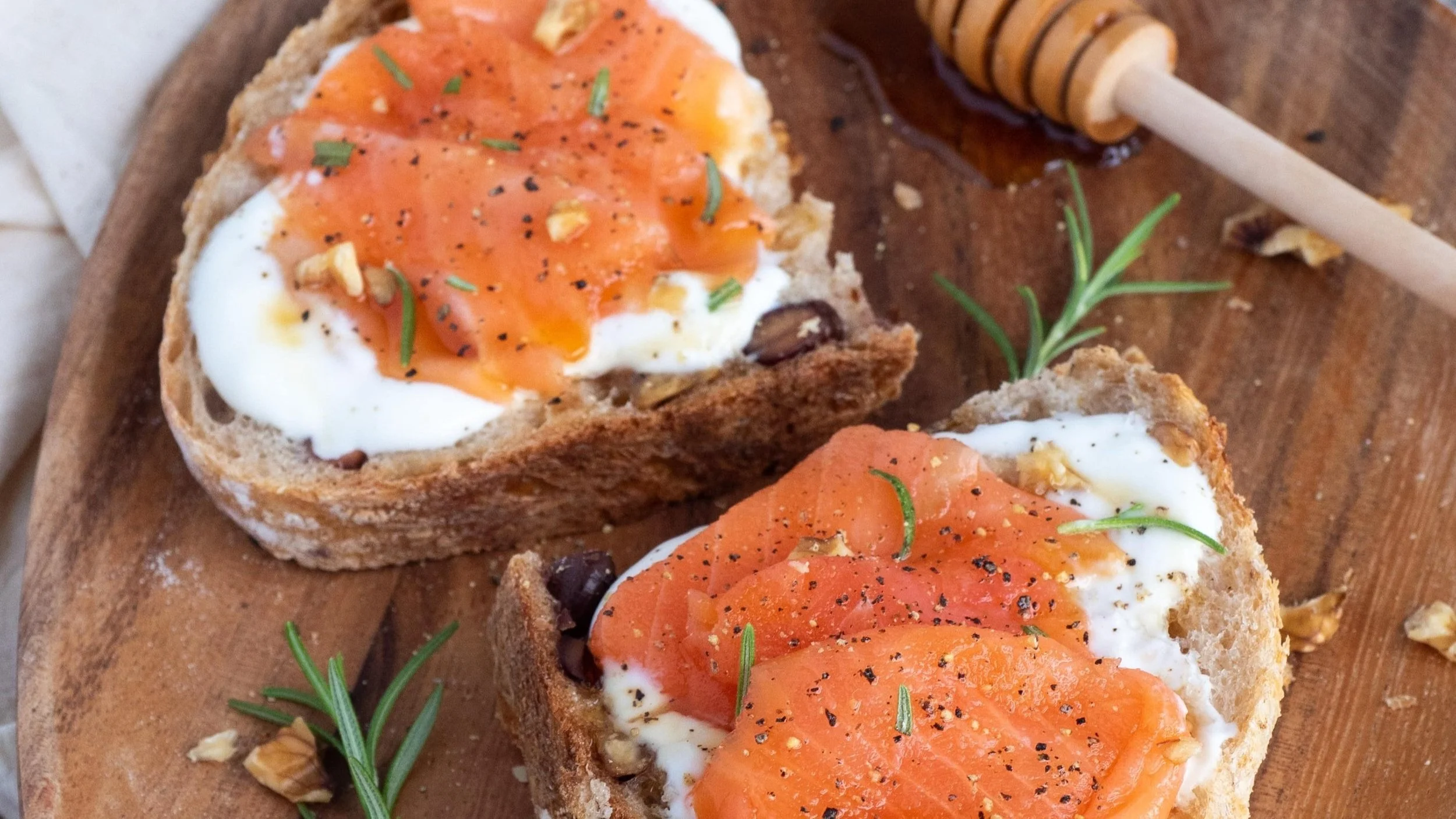Is Salmon Good for you?
For years, eating fish has been named a top choice if looking for a healthy meal for you or to cook for loved ones. However, is Salmon as good for you as everyone makes out to be? We look at the benefits of Salmon, along with the potential negatives to be aware of, to see whether Salmon is good for you overall.
Salmon Nutrition
First, we look at the nutrients of Salmon and how Salmon can contribute to your daily nourishment requirements.
How much protein in Salmon
In cooked farmed salmon, a more commonly available option in most UK supermarkets, there are 22 grams of protein. For cooked wild-caught salmon, there are 25 grams of protein on average. Whilst dependent on body weight, men require 56g/day and women require 45g/day. Salmon could therefore roughly cover half of your daily protein needs.
Therefore, people consider salmon to be one of the highest sources of protein available.
How much Vitamin B12 is in cooked salmon
There is claimed to be 117% of the daily recommended amount of vitamin B12 in farmed salmon, and 127% of the daily value (DV) in Wild caught Salmon. Vitamin B12 is required for the function of the central nervous system, healthy red blood cells, and DNA synthesis.
This may be higher than the recommended daily allowance, but being water-soluble, B12 is generally considered to be safe in higher doses.
What other vitamins and minerals are in Salmon?
In addition to protein and B12, Salmon is an excellent source of selenium, niacin, pantothenic acid, thiamine and phosphorus, which come with a multitude of nutritional benefits. Both wild and farmed salmon are a great source of omega-3 fatty acids. It can be beneficial to increase your intake of omega-3 if you have high blood pressure, want to improve your immune system, or are keen to reduce inflammation.
Is Salmon High in Saturated Fat?
Salmon is considered to be low in saturated fat. This is in part why salmon is considered to be a good choice to lower the risk of heart disease and strokes. However, as discussed later, farmed salmon may contribute to a higher risk of strokes in women.
Salmon Calories
So how many calories are there in a salmon fillet? On average, there are 182 calories in Wild Salmon and 206 calories in Farmed Salmon. If you are a calorie counter, then options such as cod or sole are a more suitable option, with around 100 calories per 3-ounce serving. Despite this, Salmon is commonly included in diets for weight loss or maintaining weight, due to its low calorie content but high nutritional value.
What is the difference between Wild and Farmed Salmon
Put simply, wild-caught Salmon are caught in their natural environment, whereas farmed salmon is usually raised in controlled freshwater environments and/or seawater cages.
In terms of nutritional value, Wild-caught salmon has greater nutritional benefits when compared with farmed Salmon. Wild-caught salmon also tends to have a brighter red-orange colour with a distinctive taste.
If you choose farmed Salmon, you may be at risk of the fish containing high levels of pollutants, known as "polychlorinated biphenyl". These pollutants have been linked to obesity, type 2 diabetes and can lead to strokes in women. Farmed salmon is also more likely to contain other contaminants and antibiotics.
Children and pregnant women are encouraged to eat cooked Wild-caught fresh Salmon only.
Is smoked Salmon good for you?
Is smoked salmon a healthy choice too? The processing of smoked salmon means it has a higher salt content, at 600-1,200mg per 3.5 ounces vs 75mg for regular Salmon.
Hot smoked salmon and cold smoked salmon have a similar nutrient content, however cold smoked salmon poses a greater risk of bacterial infection, especially if done at home without proper training.
Should you eat salmon skin?
As a general rule, Salmon Skin is safe to eat. This is dependent on the source and quality of the fish, which should also be a factor when choosing which salmon to eat, whether with or without skin.
But is salmon skin good for you? Salmon skin tends to contain more of the same nutrients you would find in the rest of your salmon fillet. Just be aware this may add slightly more to your usual serving size, particularly if you're choosing to fry the salmon skin in extra oil or fat to make it crispy.
Eat Salmon as part of a balanced diet
Whether or not you choose to eat salmon is, of course, entirely up to you. We understand that it's not to everyone's taste, and not everyone wishes to spend extra for wild-caught salmon vs farmed salmon. If you do decide to tuck into a salmon fillet, just remember to add it to Food Story!




